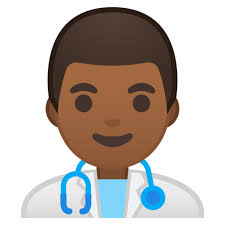SOCIAL HEALTH
Not many of us realize what social wellness involves and the impact that it has on our overall well-being. So, what is social health and wellness? Very simply, it is your ability to maintain interpersonal relationships in a satisfactory manner. Good social health is an indicator of social wellness.
For example, if your social health is good, you can easily dodge problems like loneliness and depression. This is because you will have positive relationships and not hesitate to talk to people or discuss your issues. Healthy and meaningful relationships are like the foundation of a happy life. And improving social health is all about methods to build such relationships with the people around you. If your social health is good, your social wellness quotient will also be high.
At the core, social wellness is all about engaging in positive and meaningful relationships during our life. It comes from the ability of humans to communicate what they feel, their desires, and needs. The idea is to communicate effectively and listen empathetically. This communication happens everywhere-at your workplace, in your house, or even during the visit to a family dinner.
Older people suffer from mental health problems. Their immune system is weak. Therefore, they often suffer from blood pressure and many other physical, mental, and social health problems. They expect nurturing and supportive attitudes from others around them but do not get it. In such cases, one needs to offer support and help them rise above the problems.
Make connections
Social connections might help protect health and lengthen life. Scientists are finding that our links to others can have powerful effects on our health. Whether with family, friends, neighbors, romantic partners, or others, social connections can influence our biology and well-being. Look for ways to get involved with others.
Many of us will end up becoming a caregiver at some point in our lives. The stress and strain of caregiving can take a toll on your health. It’s important to find ways to care for your health while caring for others. Depending on your circumstances, some self-care strategies may be more difficult to carry out than others. Choose ones that work for you.
Where you live, work, or go to school can have a big impact on how much you move and even how much you weigh. Being active with others in your community can have a positive effect on your health habits and create opportunities to connect. You can help your community create ways to encourage more physical activity.
Build healthy relationships
Strong, healthy relationships are important throughout your life. They can impact your mental and physical well-being. As a child you learn the social skills you need to form and maintain relationships with others. But at any age you can learn ways to improve your relationships. It's important to know what a healthy relationship looks like and how to keep your connections supportive.
Parents have an important job. Raising kids is both rewarding and challenging. Being sensitive, responsive, consistent, and available to your kids can help you build positive, healthy relationships with them. The strong emotional bonds that result help children learn how to manage their own feelings and behaviors and develop self-confidence. Children with strong connections to their caregivers are more likely to be able to cope with life’s challenges.
Many things can influence a child, including friends, teachers, and the things they see when they sit in front of the TV or computer. If you’re a parent, know that your everyday behavior plays a big part in shaping your child’s behavior, too. With your help, kids can learn to develop healthy eating and physical activity habits that last throughout their lives.
Tags
SOCIAL HEALTH
